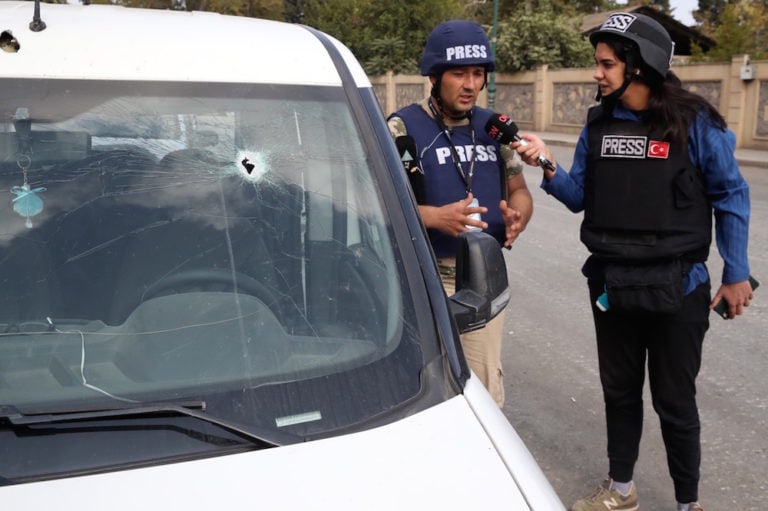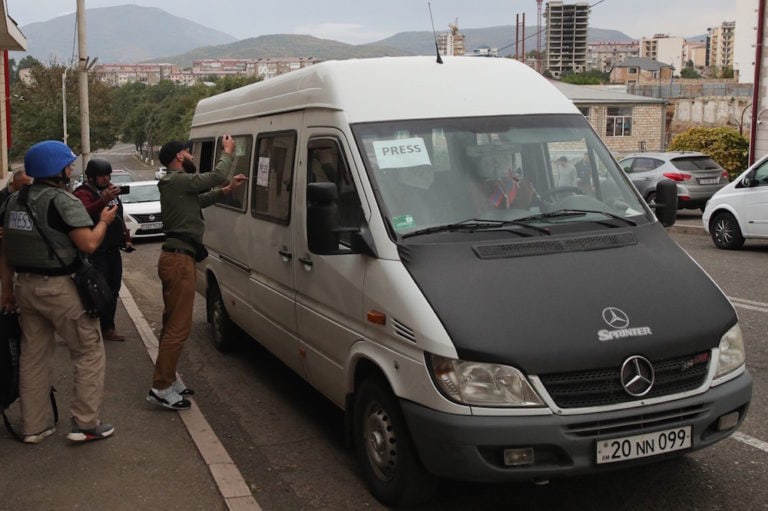(ARTICLE 19/IFEX) – The following is a 24 June 2002 ARTICLE 19 press release: No Major Independent Television Stations Left in Armenia ARTICLE 19, the Global Campaign for Free Expression, today expresses concern over the lack of independence of the Armenian National Commission on Television and Radio. This poses a significant barrier to the development […]
(ARTICLE 19/IFEX) – The following is a 24 June 2002 ARTICLE 19 press release:
No Major Independent Television Stations Left in Armenia
ARTICLE 19, the Global Campaign for Free Expression, today expresses concern over the lack of independence of the Armenian National Commission on Television and Radio. This poses a significant barrier to the development of an independent and pluralistic broadcasting sector in Armenia.
In April 2002, the Armenian National Commission on Television and Radio refused to renew licenses for two independent television broadcasters, A-One Plus and Noyan Tapan. Court appeals by both broadcasters were rejected. Both were known for being critical of government and there is widespread concern that this is why they lost their licenses, ahead of presidential elections scheduled for next year. There are now virtually no major independent television stations in Armenia.
The Law on Television and Radio Broadcasting, adopted in October 2000, establishes the Commission but fails to ensure its independence, in clear breach of the right to freedom of expression. The President directly appoints all nine members of the Commission. According to our information, the current Chair was formerly deputy chief of staff for the President while the Vice Chair was the leader of a political party which is part of the parliamentary coalition backing the President. In February 2001, ARTICLE 19 published a Memorandum criticising various aspects of the Law on Television and Radio Broadcasting, including the appointments process. (1)
Toby Mendel, Head of Law Programme at ARTICLE 19, said:
“The fact that the National Commission on Television and Radio lacks independence is a fundamental problem in the Armenian broadcasting system. Members should be appointed by an all-party body after an open process which allows for public participation. The present system directly contravenes Recommendation 2000(23) of the Committee of Ministers of the Council of Europe to Member States on the Independence and Functions of Regulatory Authorities for the Broadcasting Sector, which clearly states that members of broadcast regulators should be appointed in a ‘democratic and transparent manner’.” (2)
ARTICLE 19 calls on the Armenian authorities to undertake a full review of the Law on Television and Radio Broadcasting to bring it into line with international standards. Recent decisions by the National Commission on Television and Radio should not be implemented until they have been reviewed by an independent body.
Notes to Editors:
1. Our Memorandum is at: www.article19.org/docimages/935.htm.
2. Armenia became a member of the Council of Europe on 25 January 2001. These standards can also be found in ARTICLE 19’s standard-setting publication, Access to the Airwaves: Principles on Freedom of Expression and Broadcast Regulation, April 2002, which is at: www.article19.org/docimages/1289.htm


